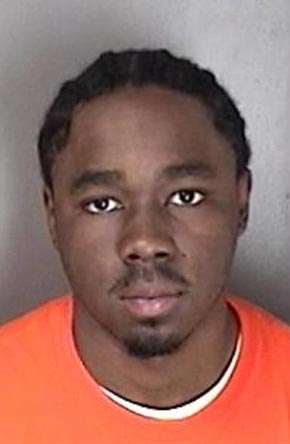
Deandre Green
Ulster County law enforcement officials say that a forged-check scheme uncovered by the District Attorney’s Office illustrates how social media and easily available software brings age-old scams into today’s world.
On Dec. 5, Deandre H. Green, 20, of Kingston was indicted by an Ulster County grand jury on two felony counts of scheme to defraud and 25 felony counts of criminal possession of a forged instrument. Green, who is currently serving two to six years in state prison on unrelated robbery charges in Poughkeepsie and Albany, was indicted following a two-year investigation by the Ulster County District Attorney’s Office. Officials say the alleged crimes contained in the indictment took place between October 2016 and January 2017. The scam ended when Green was locked up for the robberies.
“It took a couple of years for us to get all of the evidence together to obtain this indictment,” said Ulster County Assistant District Attorney Elizabeth Culmone-Mills.
Officials say that Green’s foray into bank fraud began simply enough, stealing checks from mailboxes in Uptown Kingston, altering the amounts and the payees and attempting to deposit them. The scheme evolved when Green obtained software used to generate payroll checks and began using social media to recruit accomplices. According to Culmone-Mills, Green would reach out to potential accomplices by posting photos of cash and promises of easy money. Participants were asked to open bank accounts and send Green their online banking data including passwords, account numbers and routing numbers. Other accomplices sent Green copies of their payroll checks. Green would use the checks as a template and, using the computer program would generate new, forged ones. Green would then deposit the forged checks into various bank accounts and attempt to withdraw the funds. Culmone-Mills said Green recruited as many as 65 people to aid him in the scheme by providing paychecks, banking information or both. Most of the recruits, she said were young adults lacking in financial sophistication.
“He used younger, naïve — and I’m using ‘naïve’ generously — people,” said Culmone-Mills of Green’s accomplices.
Green’s scam began to unravel in 2016 when a District Attorney’s Office investigator stumbled across some of his social media posts. Suspecting a bank fraud scam, the investigator alerted prosecutors, who launched an investigation. Meanwhile, Green continued to deposit thousands of dollars in forged checks into a number of local and national financial institutions.
The indictment alleges that Green attempted to deposit $24,847 from 10 separate businesses and individuals. That figure, Culmone-Mills said, only includes transactions that took place in Ulster County and where investigators were able to establish a clear link between Green and the fraud. Overall, Culmone-Mills said, investigators believe Green tried to deposit about $800,000.
Despite the seemingly lucrative nature of the fraud, Culmone-Mills said that Green reaped relatively meager returns. Usually, she said, banks declined to clear the checks, most of which totaled between $400 and $500.
“In most cases these we’re accounts that had just been opened with $5 in them,” said Culmone-Mills. “So the banks didn’t let the checks go through.”
Of the $24,847 in fraudulent checks charged in the indictment, investigators believe Green was only able to withdraw $1,987. As for the people who handed Green their banking information and paychecks to aid the scam, few of them, Culmone said, saw any of the promised windfall.
“He wound up scamming everyone,” said Culmone-Mills. “A lot of the participants didn’t get a dollar out of it.”
Culmone-Mills said similar forged check scams had popped up in other jurisdictions, including one that was the subject of a massive indictment by the Manhattan District Attorney’s Office earlier this year. Culmone-Mills said the scheme spread virally online; investigators believe that Green learned the scam and obtained the software needed to forge the checks through a network of online conments. Green, in turn, may have taught the con game to others.
“We know this is still going on,” said Culmone-Mills. “There are people out there doing this and recruiting others to do it.”
